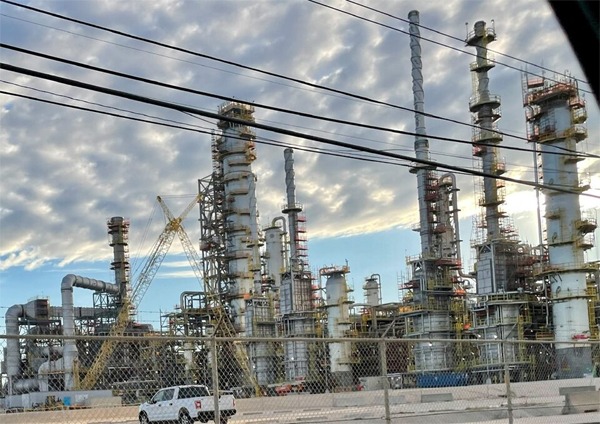US oil refiners will look to Latin America and the Middle East to replace suddenly more expensive Canadian and Mexican crudes following President Donald Trump’s tariff salvo, according to traders.

Serene Cheong and Yongchang Chin, Bloomberg News
SINGAPORE
EnergiesNet.com 02 10 2025
US oil refiners will look to Latin America and the Middle East to replace suddenly more expensive Canadian and Mexican crudes following President Donald Trump’s tariff salvo, according to traders.
American processors are likely to seek alternative grades of the types of heavier oil produced by its neighbors from Brazil and Guyana, given their relative proximity, the traders said. They could even seek crude from as far away as Iraq, although it only produces a limited amount of so-called destination-free cargoes that can be exported anywhere, they said.
Trump has jeopardized around 4.5 million barrels a day of oil imports from his neighbors. The bulk of that comes from Canada, and will face a 10% levy, while barrels from Mexico will be hit with a 25% duty. Venezuelan crude would be a suitable replacement, but it’s unlikely Washington will relax curbs on flows from the South American nation.
The tariffs could spur a partial re-routing of energy supply chains that may result in longer travel times and increased transport costs. Excess Mexican crude would likely be marketed to Asia, while Canadian crude is expected to be discounted to clear into the US, while a limited amount could be exported via the Pacific coast. The buying of US grades by Asian refiners, meanwhile, could slow if the discount of West Texas Intermediate to global benchmark Brent keeps narrowing.
Canadian producers will be forced to “lower Western Canadian Select prices to offset the 10% tariff,” JPMorgan Chase & Co. analysts including Natasha Kaneva said in a note. Mexico “can redirect exports to Europe and Asia, while the US can replace Mexican crude with longer-transit-time alternatives,” they said.
US refiners, particularly those in the Midwest that are reliant on Canadian oil, will face higher feedstock costs due to the tariffs. The costs of the levies will translate to an extra $3 to $4 a barrel borne by Canadian producers and $2 to $3 by Midwestern consumers, Goldman Sachs Group Inc. analysts including Daan Struyven and Samantha Dart said in a note. The impact will also eventually spill over to the price of refined oil products elsewhere in the US, they said.
Benchmark gasoline futures in New York soared by as much as 6.2% on expectations that US refiners would pass on higher costs to drivers, or trim fuel-production rates.
That could be a boon for Asian and European refiners, who may benefit from stronger markets for gasoline and diesel. Chinese and other Asian processors that have been struggling with sinking margins following Washington’s Jan. 10 sanctions on Russian oil may get a reprieve.
Logistical bottlenecks, such as the difficulty of moving Canadian crude to the Pacific due to limited pipeline capacity, and continued risks to Red Sea shipping, may limit the extent to which oil is re-routed. There’s also a chance that the reduced 10% tariff on Canadian oil may not be severe enough to spur a major change to existing trade flows.
“At 10%, pricing offsets are more manageable, and likely will not require a significant overhaul to physical flows,” RBC Capital Markets LLC said in a note by strategists including Brian Leisen.
bloomberg.com 02 03 2025












